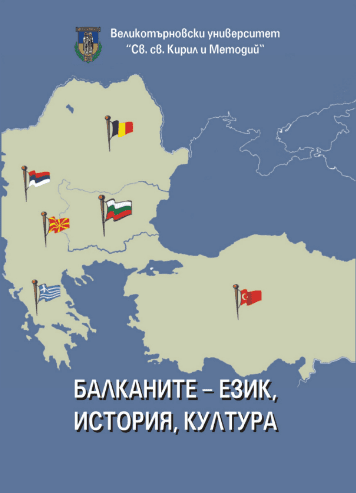Romania as an Exemplary Satellite of Communist Bulgaria: Influences, Diplomacy and Ideology between 1945 and 1947
Romania as an Exemplary Satellite of Communist Bulgaria: Influences, Diplomacy and Ideology between 1945 and 1947
Author(s): Florin AnghelSubject(s): History, History of ideas, Political history, Recent History (1900 till today), Special Historiographies:, WW II and following years (1940 - 1949), History of Communism
Published by: Великотърновски университет „Св. св. Кирил и Методий”
Keywords: communism; Romania; Bulgaria; 1945–1947; Georgi Dimitrov
Summary/Abstract: The Romania–Bulgaria relations were assigned the role of satellites belonging first to the Axis, and then to the U.S.S.R., following the regulation of the territorial statute of Southern Dobruja on 7 September 1940 through the Treaty of Craiova. After the Red Army entered Bulgaria, on 8 September 1944, an unusual fact intervened between Bucharest and Sofia from the perspective of Kremlin’s influence, of course: the priority of Bulgarian political, ideological and diplomatic factors over the Romanian ones, unprecedented in the history of almost seven decades of the modern bilateral relations. The lack of human and ideological resources of the Romanian Communist Party became obvious during the competition with the Bulgarian Communists and their leader, Georgi Dimitrov, which was not even declared. Communist Bulgaria became a model that Romanian communists did not seriously take into account. At least in the year when King Mihai I abdicated (1947), they were zestfully studying and copying this model, as the case may have been. Being a so-called People’s Republic even since September 1946, following a falsified popular referendum, Bulgaria undertook to coordinate plans of internal and external politics of Romania during the next months. In order to finalize a “Bulgarian way” in Romania, the government led by Petru Groza and the media of propaganda (mainly Scînteia, the press official of the Romanian Communist Party), scrupulously assumed the role of protagonists. Just like the U.S.S.R., for more than two years (1946 – February 1948), Communist Bulgaria became an extremely important and valuable topic of the Romanian public speech, of the Romanian Communists’ confirmation, of establishing the project for instituting the totalitarian regime. The similarity of actions and of the institutes’ organization was striking for this short period, and the treaty signed in January 1948 was nothing but the end of a period extremely abundant in models and suggestions for Romanian communists.
Journal: Балканите – език, история, култура
- Issue Year: 8/2023
- Issue No: 1
- Page Range: 177-187
- Page Count: 11
- Language: English

